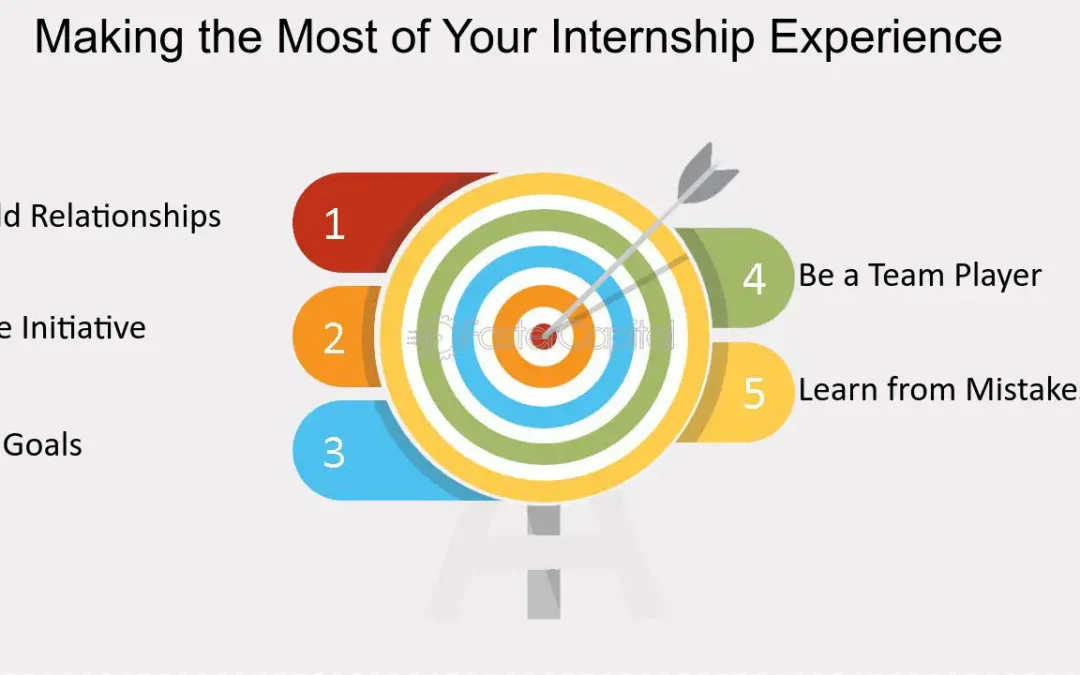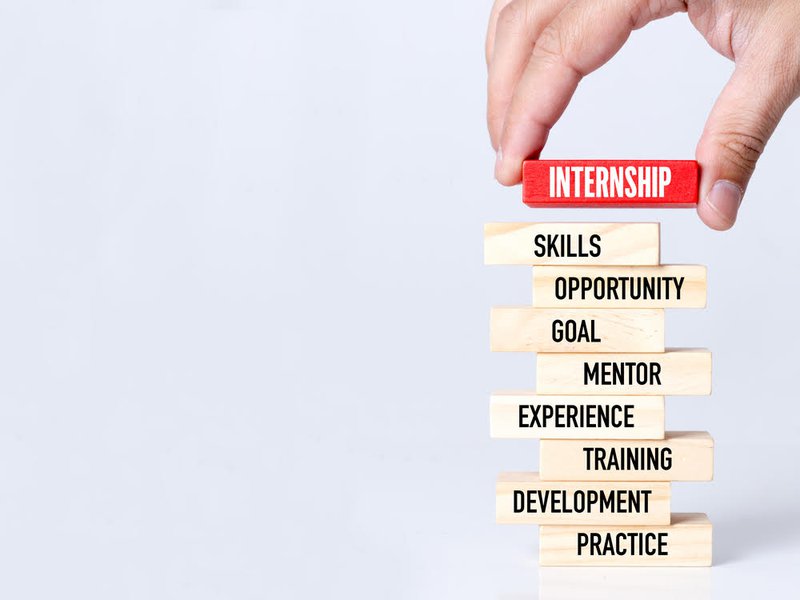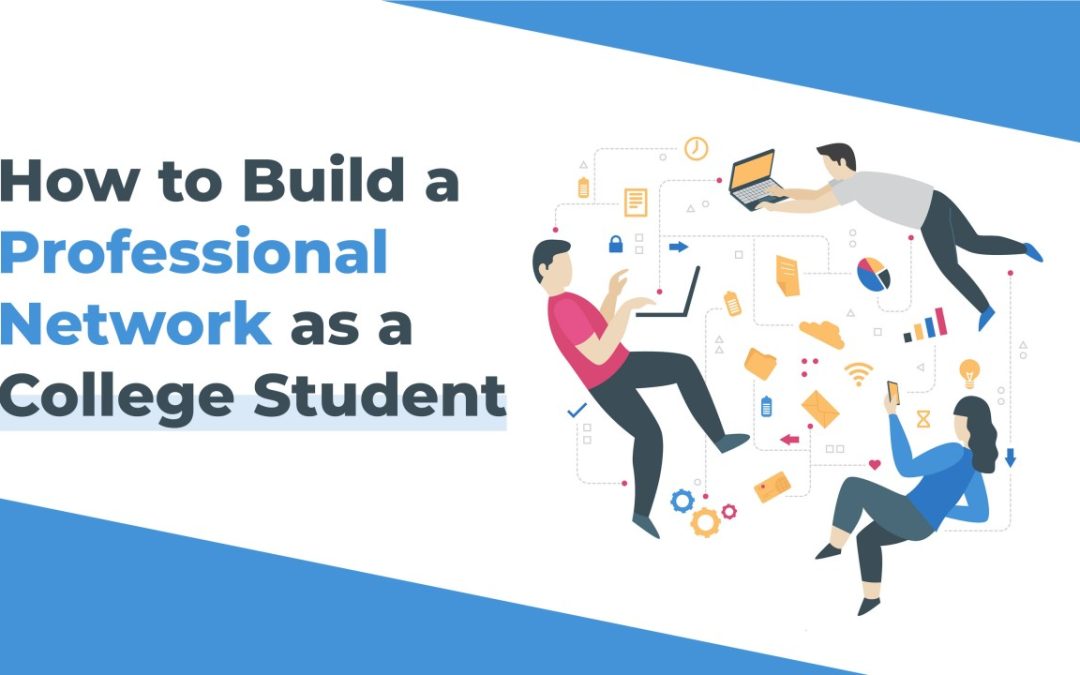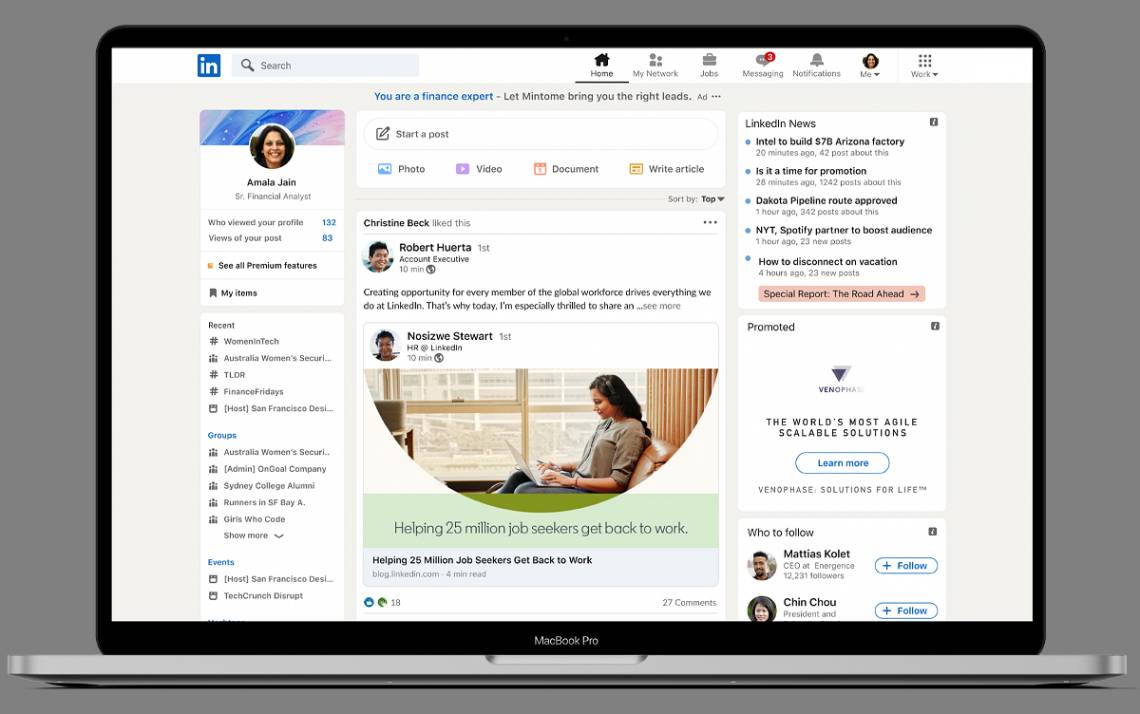
by rousza met | May 29, 2024 | Job Analysis, Employee Handbooks, Employee Orientation, Employment Application, Job, Skills Gap Analysis, Study
An internship is a valuable opportunity to gain practical experience, build professional skills, and establish a network in your desired industry. Here’s a comprehensive guide on how to make the most of your internship experience:

1. Set Clear Goals
Before starting your internship, define what you hope to achieve. Are you looking to develop specific skills, gain insights into a particular industry, or make professional connections? Setting clear, measurable goals will help you stay focused and evaluate your progress.
2. Understand Your Role and Responsibilities
– Learn the Basics: Understand the fundamental tasks and expectations of your role. Don’t hesitate to ask for a detailed description of your responsibilities.
– Ask Questions: In the beginning, you might feel overwhelmed. Ask questions to clarify tasks and expectations to ensure you’re on the right track.
3. Be Proactive
– Take Initiative: Look for opportunities to contribute beyond your assigned tasks. This could involve suggesting new ideas or helping a project in need.
– Seek Additional Projects: As you grow more comfortable in your role, ask for more responsibilities that align with your career interests and goals.
4. Build Your Network
– Connect Internally: Introduce yourself to as many coworkers as possible, not just those in your immediate team. Attend company events and social gatherings.
– Seek a Mentor: Identify someone within the organization from whom you can learn. This could be your supervisor or another experienced colleague.
– Maintain Contacts: Even after your internship ends, keep in touch with your colleagues and mentors. They can provide valuable advice and may inform you of future job opportunities.
5. Observe and Learn
– Industry Knowledge: Pay attention to how the company operates and how your department fits into the larger picture. Understand the industry trends and challenges.
– Professional Skills: Note the soft skills displayed by successful employees, such as communication, teamwork, and problem-solving.
6.Ask for Feedback
– Regular Feedback: Regularly ask for feedback on your performance. This not only shows your eagerness to improve but also helps you adjust your approach before small issues become larger.
– Performance Review: If your internship program includes a formal review, prepare by reviewing your accomplishments and areas for improvement.
7. Document Your Experience
– Keep a Journal: Regularly write down what you learn, the skills you develop, the projects you work on, and the people you meet.
– Portfolio: For creative fields, keep samples of your work to show future employers. For other fields, a detailed list of project roles and impacts can be useful.
8. Professional Conduct
– Punctuality : Always arrive on time or early, and respect deadlines.
– Dress Appropriately : Follow the company’s dress code, aiming for a professional appearance.
Ethics and Confidentiality: Be mindful of the company's code of conduct, especially with confidential information.
9. Reflect on Your Experience
At the end of your internship, reflect on what you’ve learned and how it applies to your career goals. Evaluate the extent to which you’ve achieved your initial goals and what steps you should take next in your career path.
10. Exit Gracefully
– Thank You Notes : Send personalized thank-you notes to your supervisor and anyone else who was particularly helpful during your internship.
– Exit Interview : If an exit interview is offered, participate thoughtfully. Provide constructive feedback about the internship experience and express gratitude for the opportunity.
By actively engaging in these practices, you can maximize your internship experience, making it a pivotal step towards a successful career.

by rousza met | May 29, 2024 | Employee Handbooks, Employee Orientation, Employment Application, Interview Techniques, Job Analysis, Skills Gap Analysis, Uncategorized
Preparing for an internship involves several steps to ensure you're ready to make the most of the experience. Here are some key steps to consider:
1. Research the Company:
– Understand the company's mission, culture, products, and the industry it operates in. This will help you make informed contributions and ask insightful questions.
2. Review the Job Description:
– Familiarize yourself with the tasks you'll be expected to perform. Understanding the skills and knowledge required will help you focus your preparation.
3. Update Your Resume and Cover Letter:
– Tailor your resume and cover letter to highlight skills and experiences relevant to the internship. Make sure they are error-free and professional.
4. Prepare for the Interview:
– Practice common interview questions and scenarios specific to the role you're applying for. Consider doing mock interviews with friends or mentors to build confidence.
5. Develop Relevant Skills:
– Based on the job description, work on any skills you need improvement on. This could involve taking online courses, reading relevant books, or practicing certain tasks.
6. Network:
– Reach out to current or past employees at the company, especially those in the department you’re interested in. LinkedIn can be a great tool for this. Ask them about their experience and any advice they might have for a newcomer.
7. Understand Professional Etiquette:
– Learn about professional etiquette in your industry, including dress code, communication norms, and office behavior.
8. Set Goals:
– Think about what you want to achieve during your internship. Setting clear, achievable goals can help you stay focused and make the most of your experience.
9. Prepare Logistically:
– Ensure you know the commute time, workspace setup, start date, and work hours. If it’s a remote internship, check your internet connection and digital tools you might need.
10. Stay Organized:
– Keep track of important dates, tasks, and any materials you need for your internship. Using a planner or digital tools can help manage your responsibilities effectively.
By following these steps, you'll be well-prepared to start your internship and make a positive impression!

by rousza met | May 3, 2024 | Job Analysis, Employee Orientation, Employment Application, Skills Gap Analysis, Study
Transitioning from the world of academia to the workforce can be both exhilarating and daunting. As a student on the brink of entering the professional realm, you may have questions about what to expect and how to navigate this significant life transition. Fear not! Here's a comprehensive guide to help you prepare for the journey ahead.

1. Adjusting Your Mindset
The shift from student to employee involves more than just a change in schedule—it requires a shift in mindset. Embrace the reality that you are now part of a team working towards common goals. Be prepared to take on responsibilities, make decisions, and contribute your skills and expertise to your new workplace.
2. Navigating Company Culture
Every workplace has its own unique culture and set of norms. Take the time to observe and understand the culture of your new workplace. Pay attention to how people communicate, dress, and interact with one another. Adapt your behavior accordingly while staying true to your values and principles.
3. Mastering Time Management
In the professional world, time is a precious commodity. Learn to prioritize tasks, set deadlines, and manage your time effectively. Utilize tools and techniques such as to-do lists, calendars, and time-blocking to stay organized and focused. Remember, punctuality is key—arrive on time for meetings and deadlines.
4. Developing Professional Relationships
Building strong relationships with your colleagues is essential for success in the workplace. Be approachable, friendly, and open to collaboration. Take the initiative to introduce yourself, ask questions, and seek feedback. Cultivate positive working relationships based on trust, respect, and mutual support.
5. Embracing Continuous Learning
Just because you've graduated doesn't mean your learning journey is over. Embrace the mindset of lifelong learning and professional development. Seek out opportunities to expand your knowledge and skills through training programs, workshops, and certifications. Stay curious, adaptable, and open to new experiences.
6. Navigating Office Politics
Office politics can be tricky to navigate but ignoring them won't make them disappear. Be aware of the dynamics at play in your workplace and tread carefully. Avoid gossip, cliques, and power struggles. Focus on your work, maintain professionalism, and build alliances based on merit and mutual respect.
7. Managing Expectations
As a new employee, you may feel pressure to prove yourself and excel in your role. While ambition is admirable, it's important to manage your own expectations realistically. Give yourself time to adjust to your new environment, learn the ropes, and grow into your role. Rome wasn't built in a day, and neither is a successful career.
8. Seeking Feedback and Growth Opportunities
Don't be afraid to seek feedback from your managers, colleagues, and mentors. Use constructive criticism as an opportunity for growth and improvement. Take on new challenges, volunteer for projects outside your comfort zone, and actively seek opportunities for advancement within your organization.
9. Maintaining Work-Life Balance
Finally, remember to prioritize your well-being and maintain a healthy work-life balance. Set boundaries between work and personal life, and make time for activities that recharge your batteries and bring you joy. Remember, a happy and fulfilled employee is a productive employee.
In conclusion, transitioning from student to employee is a significant milestone in your life journey. By adjusting your mindset, navigating company culture, mastering time management, developing professional relationships, embracing continuous learning, navigating office politics, managing expectations, seeking feedback and growth opportunities, and maintaining work-life balance, you can successfully navigate this transition and thrive in your new role. So, embrace the journey with confidence, curiosity, and a willingness to learn and grow. Your future awaits!

by rousza met | May 3, 2024 | Job Analysis, Skills Gap Analysis

As a student, you might think that professional networking is something reserved for established professionals in suits at formal events. However, building a strong professional network is equally important for students, if not more so, as it can open doors to internships, mentorships, and even future job opportunities. So, how can you effectively build and nurture your professional network while still in school? Let's explore some strategies.
1. Start with Your Inner Circle
Your existing network might be larger than you think. Begin by reaching out to classmates, professors, advisors, and alumni from your school. Attend networking events hosted by your university or student organizations. These connections can provide valuable insights, support, and introductions to other professionals in your field of interest.
2. Utilize Social Media
Platforms like LinkedIn, Twitter, and even Instagram can be powerful tools for expanding your professional network. Create a LinkedIn profile and connect with classmates, instructors, and industry professionals. Follow companies, organizations, and influencers relevant to your career aspirations. Engage with their content by commenting thoughtfully and sharing valuable insights.
3. Attend Networking Events
Take advantage of networking events both on and off-campus. Career fairs, industry conferences, workshops, and seminars are excellent opportunities to meet professionals in your field, learn about job openings, and gain industry knowledge. Prepare an elevator pitch and approach conversations with curiosity and authenticity.
4. Join Professional Organizations
Many fields have student chapters of professional organizations that offer networking events, workshops, and resources tailored to students. Joining these organizations not only allows you to connect with peers who share your interests but also provides access to industry professionals who can offer guidance and support.
5. Seek Out Mentors
A mentor can provide invaluable advice, guidance, and encouragement as you navigate your academic and professional journey. Reach out to professionals whose career paths inspire you and ask if they would be willing to mentor you. Be clear about your goals and respectful of their time, and don't hesitate to express gratitude for their support.
6. Offer Value and Be Genuine
Networking is not just about asking for favors; it's about building genuine relationships based on mutual respect and trust. Offer value to your connections by sharing relevant articles, insights, or opportunities. Be authentic, approachable, and genuine in your interactions, and always follow up with a thank-you note or message after connecting with someone new.
7. Maintain and Nurture Your Network
Building a professional network is an ongoing process that requires consistent effort and nurturing. Stay in touch with your connections by sending occasional updates, congratulating them on their achievements, or reaching out for advice or feedback. Remember, the strength of your network lies in the quality of your relationships.
In conclusion, building a professional network as a student is a valuable investment in your future career success. By leveraging your existing connections, utilizing social media, attending networking events, joining professional organizations, seeking out mentors, offering value, and nurturing your relationships, you can expand your network and create opportunities for yourself both during and after your academic journey. So, don't wait until graduation to start building your network—start today!

by rousza met | May 3, 2024 | Employee Orientation, Employment Application, Interview Techniques, Job Analysis, Skills Gap Analysis
Title: Unlocking the Power of LinkedIn: Crafting Your Profile as a Student and Job Seeker
In today's digital age, LinkedIn has become more than just a professional networking platform; it's a powerful tool for students and job seekers alike to showcase their skills, experiences, and aspirations. With over 700 million users worldwide, LinkedIn offers a vast network of opportunities waiting to be explored. So, how can you make the most out of this platform to build your profile effectively as both a student and a job seeker? Let's dive in.

1. Optimize Your Profile
Your LinkedIn profile is your digital resume, so make sure it shines. Start with a professional profile picture and a compelling headline that highlights your current status (e.g., “Motivated Student | Aspiring Software Developer”). Craft a summary that showcases your unique strengths, passions, and career goals. Don't forget to fill out your experience, education, skills, and other relevant sections to provide a comprehensive overview of your background.
2. Showcase Your Achievements
Whether it's academic accolades, volunteer work, internships, or personal projects, highlight your achievements prominently on your profile. Use concise yet descriptive language to demonstrate the impact you've made in each role or endeavor. Include relevant keywords to increase your visibility in searches conducted by recruiters and employers.
3. Build Your Network
Networking is key on LinkedIn. Connect with classmates, professors, industry professionals, and alumni to expand your network. Personalize connection requests to establish genuine connections. Join LinkedIn groups related to your field of study or career interests to engage with like-minded individuals and participate in discussions.
4. Engage with Content
Stay active on LinkedIn by sharing insightful articles, commenting on posts, and congratulating others on their achievements. Engaging with content not only helps you stay visible but also positions you as a knowledgeable and enthusiastic professional in your field. Don't hesitate to share your own thoughts, experiences, and projects to spark meaningful conversations.
5. Seek Opportunities
Utilize LinkedIn's job search feature to explore internship, part-time, and full-time opportunities aligned with your interests and career goals. Follow companies you're interested in to stay updated on their latest developments and job openings. Consider reaching out to recruiters or hiring managers directly with personalized messages expressing your interest and qualifications.
6. Request Recommendations
Gather recommendations from professors, supervisors, or colleagues who can vouch for your skills and work ethic. These testimonials add credibility to your profile and provide valuable insights for potential employers. Don't hesitate to reciprocate by writing recommendations for others in your network.
7. Continuously Update and Improve
Your LinkedIn profile is a work in progress. Regularly update it with new experiences, skills, certifications, and accomplishments. Stay informed about industry trends and best practices to ensure your profile remains relevant and compelling.
In conclusion, LinkedIn offers a plethora of opportunities for students and job seekers to showcase their talents, connect with professionals, and pursue their career aspirations. By optimizing your profile, building your network, engaging with content, and actively seeking opportunities, you can leverage this platform to propel your academic and professional journey forward. So, why wait? Start crafting your standout LinkedIn profile today and unlock the doors to endless possibilities.









